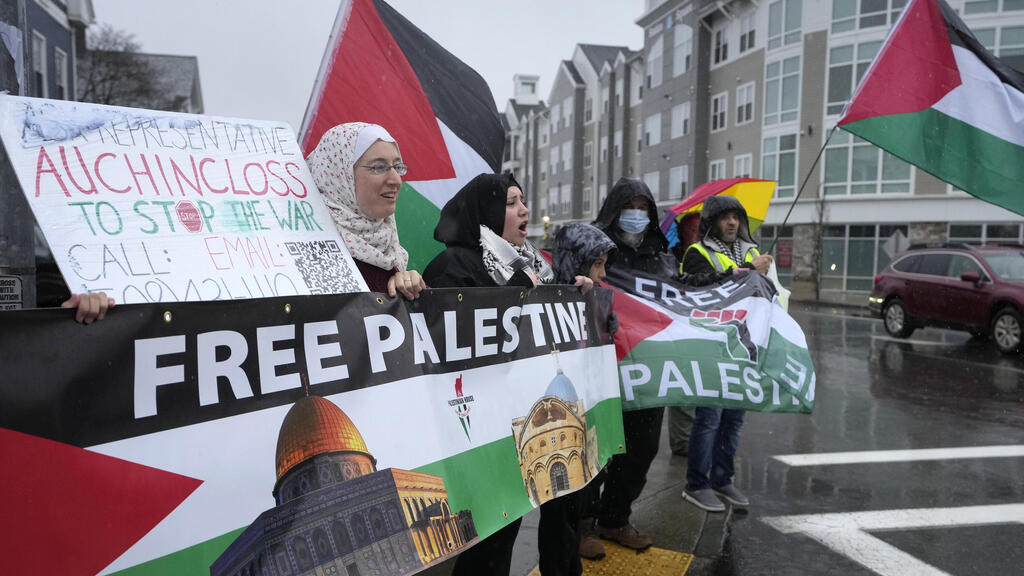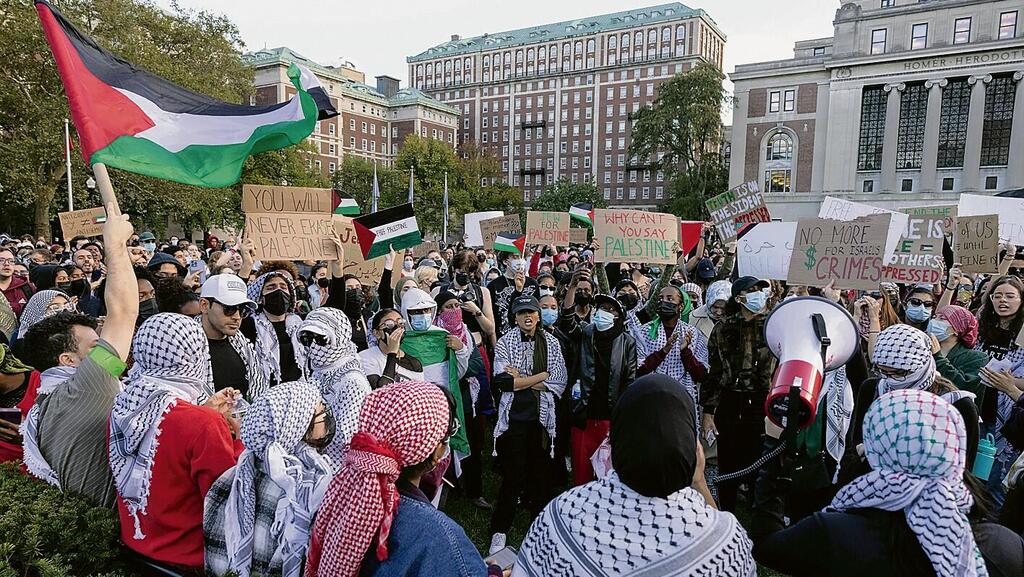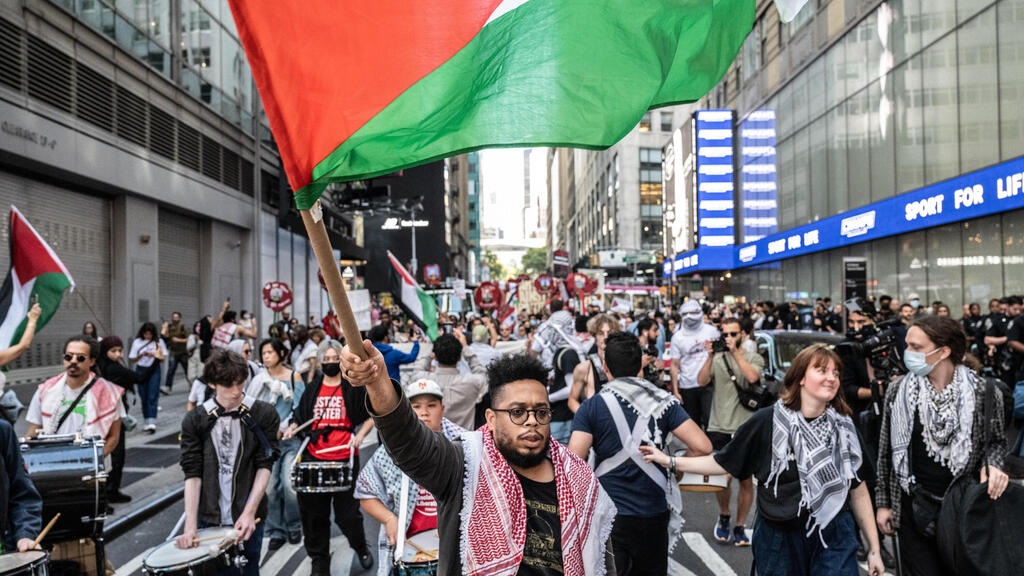Getting your Trinity Audio player ready...
More than 10,000 antisemitic incidents have been documented in the United States since Hamas' terror attack on October 7, marking the highest number ever recorded over such a short period since data tracking began in 1979. This alarming figure was presented during a session of the Knesset's Committee for Immigration, Absorption, and Diaspora Affairs.
Of the incidents, 8,015 involved verbal or written harassment. Another 1,840 cases were acts of vandalism, and over 150 were physical assaults. At least 1,200 incidents occurred on university campuses, while more than 2,000 targeted Jewish institutions such as synagogues and community centers. Additionally, over 3,000 incidents took place during anti-Israel rallies, many of which included explicit support for terrorist groups.
Anti-Israel protests at U.S. universities
Dr. Raheli Baratz, head of the Department for Combating Antisemitism at the World Zionist Organization, compared the current state of antisemitism to the 1930s. “Today’s situation is worse. News of a synagogue burning in Australia doesn’t even make headlines. Some governments are enacting antisemitic legislation, which should deeply alarm both Israel and the Jewish diaspora,” she said.
Jonathan Greenblatt, CEO of the Anti-Defamation League, also addressed the Knesset. "Since the war began, we’ve seen a more than 200% increase in antisemitic events. Antisemitism today is worse than anything we’ve witnessed in recent generations. The media and social networks have become a battleground, and the fight for global public opinion is as crucial as Israel’s battles in Lebanon or Syria,” he warned.
Get the Ynetnews app on your smartphone: Google Play: https://bit.ly/4eJ37pE | Apple App Store: https://bit.ly/3ZL7iNv
Greenblatt called for a shift in strategy, urging Israel to invest more resources and adopt innovative tactics to combat antisemitism. “To succeed, we must work together. We don’t need to agree on everything, but we must collaborate. Regardless of where we live or pray, the Jewish people share a common destiny,” he told the lawmakers.
Israel urged to take action
Diaspora Affairs Minister Amichai Chikli highlighted Iran’s role in spreading antisemitism online and the influence of Gulf states that back Muslim Brotherhood ideologies. “Extremist fringes in the U.S. are expanding their support for antisemitism, and this should concern us all. We’ve established a command center that recently provided intelligence on antisemitic attacks in Amsterdam. Fighting antisemitism is a full-scale war,” he said.
Chikli emphasized the importance of strengthening Jewish identity as a means to combat antisemitism. “Without a strong Jewish identity, the fight against antisemitism is unwinnable,” he added.
Ruth Cohen Dar, head of the Foreign Ministry’s department for combating antisemitism and preserving Holocaust memory, stressed the role of digital platforms in spreading hate. “The digital space and campuses have become hubs for inciting hatred against Jews and Israelis. The fight against antisemitism requires global alliances and diplomatic tools,” she said.
Yaakov Hagoel, chairman of the World Zionist Organization, called on governments worldwide to prioritize the safety of Jewish communities. “Governments are not doing enough to prevent antisemitism. We need action on multiple fronts: education, legislation and enforcement,” he said.
Hagoel also highlighted the recent wave of immigration to Israel, with over 35,000 Jews moving to the country since the war began. “A strong Israel means a strong Jewish people. We must encourage aliyah and support Jewish communities globally with security measures,” he added.
Rising fear among Diaspora Jews
Jamie Geller, CMO of the Aish organization, described the growing fear among Jews in the diaspora. “Seventy percent of American Jews are unaffiliated with any organization, leaving them vulnerable to antisemitism. Education must be a central part of this fight,” she said.
Moshe Chaim Davis, an advisor to New York’s mayor, shared alarming statistics about his city. “There were over 3,000 antisemitic incidents in New York last year. The mayor sees himself as a modern-day Maccabee. I walk the streets of New York proudly wearing my kippah and look forward to collaborative efforts to combat antisemitism worldwide.”
Committee Chair Oded Forer concluded the session by emphasizing the dire state of global antisemitism. “Since the war began, antisemitism has surged by hundreds of percent globally. Diaspora Jews live in fear, often forced to hide their identities. Social media is rife with antisemitic rhetoric and denial of the October 7 massacre, yet there’s no significant enforcement or deterrence,” Forer said.
Forer called on Israel and other nations to classify Zionism as a protected value on U.S. campuses, labeling this mission a global priority.








